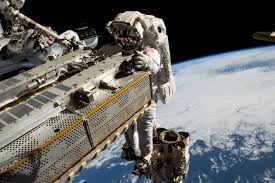The United States National Aeronautics and Space Administration (NASA) is facing another wave of leadership departures, further clouding the future of its Artemis moon program.
This is coming as President Donald Trump and SpaceX CEO, Elon Musk, push for a shift in focus toward Mars.
Four senior officials closely tied to the agency’s lunar ambitions are stepping down, raising concerns about NASA’s space exploration trajectory.
According to Reuter, Jim Free, NASA’s associate administrator and a prominent defender of Artemis, will retire on Saturday, the agency announced on Wednesday. Meanwhile, three senior officials at NASA’s Marshall Space Flight Center in Huntsville, Alabama—heads of procurement, finance, and information—had their retirements disclosed internally on Tuesday, according to a person familiar with the matter.
Their roles have been temporarily filled by deputies, but no replacement for Free has been named. NASA has not responded to requests for comment.
The leadership shake-up comes as Musk, who has long advocated for human missions to Mars, takes on a growing role within the Trump administration.
As a “special employee” reviewing NASA records, he has pushed for budget cuts and staffing reductions. His company, SpaceX, holds $15 billion in NASA contracts, including one to land humans on the moon using its Starship rocket.
Within NASA, there has been speculation that Free’s departure was inevitable, particularly as some Trump advisors have expressed skepticism toward the Space Launch System—NASA’s costly but operational moon rocket.
Trump, who originally prioritized the moon during his first term, has in recent months signaled interest in more ambitious Mars missions, a stance reinforced by Musk’s influence.
Jeff Bezos, whose company Blue Origin has a multi-billion-dollar lunar contract with NASA, urged the Trump administration in January to stay the course with the moon program.
However, the administration swiftly removed Free and installed Janet Petro, former director of NASA’s Kennedy Space Center, as acting associate administrator—a move widely seen as an effort to limit resistance to potential changes.
Adding to the uncertainty, NASA employees have been bracing for potential layoffs. Hundreds have accepted buyout offers under Trump’s administration, and around 1,000 new hires with probationary status were expected to be dismissed on Tuesday under a White House order.
Meanwhile, Trump’s nominee to lead NASA, private astronaut and billionaire entrepreneur Jared Isaacman, is in Washington this week preparing for his Senate confirmation hearing. His leadership will likely play a key role in shaping NASA’s future direction amid growing uncertainty over its long-term priorities.
ALSO READ TOP STORIES FROM NIGERIAN TRIBUNE






